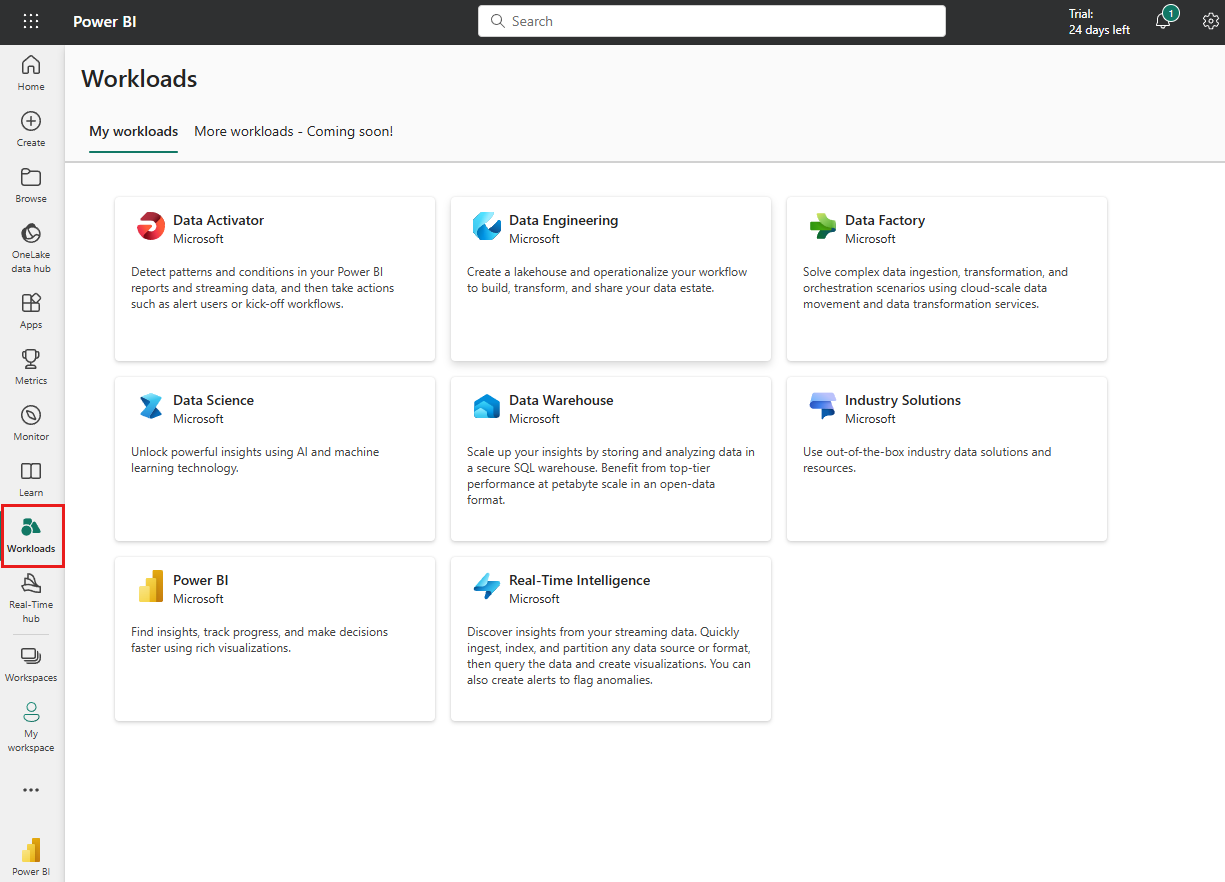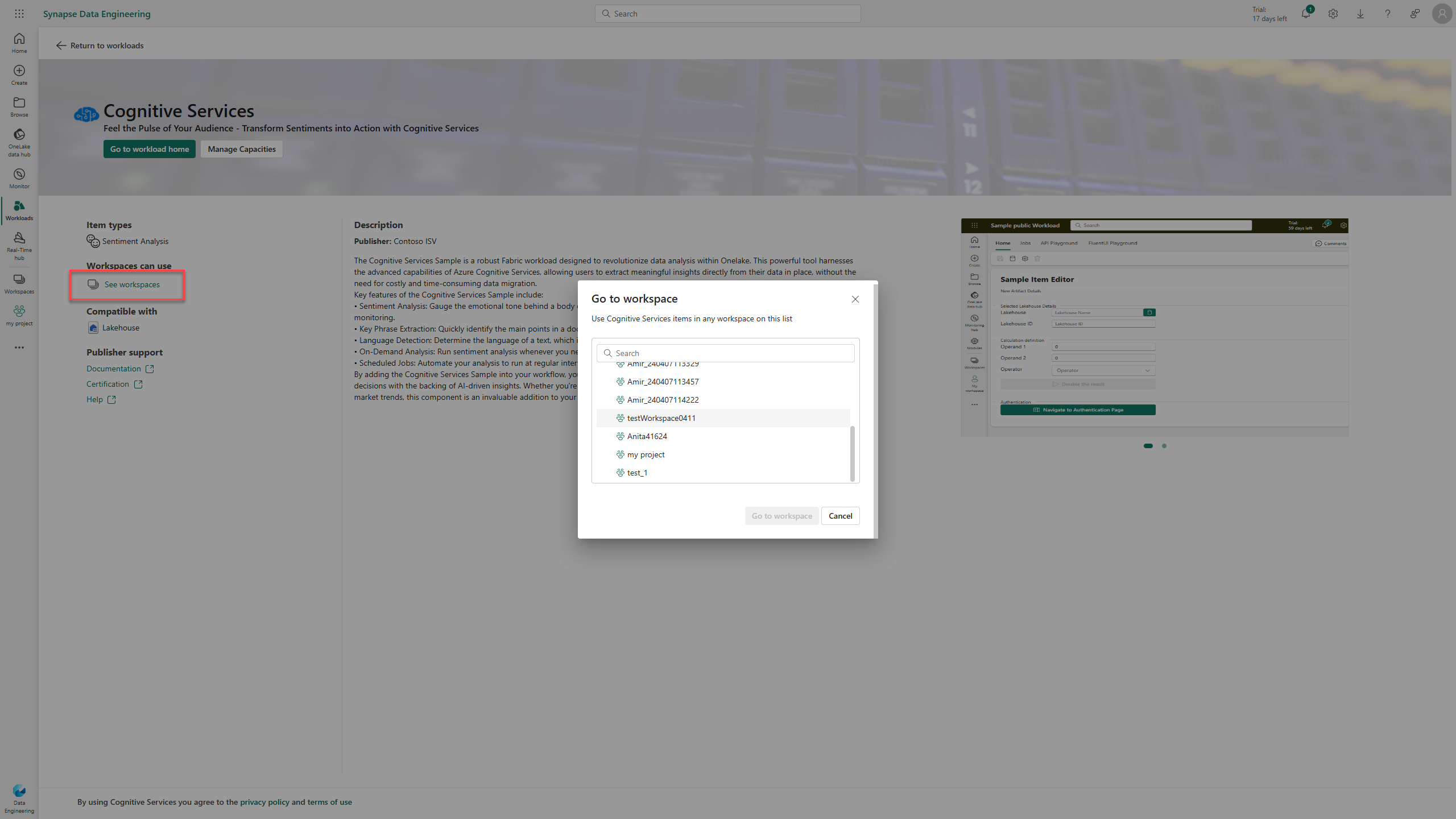Workload hub (preview)
The workload hub is a central location where you can view all the workloads available in Fabric. Each workload in Fabric has its own item type associated with it. The item types can be created in Fabric workspaces. To access the workload hub, navigate to the workload from the left navigation menu.
All the workloads available under the My Workloads tab can be used to and applied in your analytical projects. You can start generating items and performing various operations on them.
More workloads allow for more functionality in Fabric. Users with the right permissions can add workloads and make them available either to the entire tenant or to a specific capacity.
In the More workloads section, workloads published by Microsoft & Partners can be added, not all users can add workloads. Admins can control who can add workloads in the organization.
Each workload includes additional information describing workload capabilities and other information including:
- Item Type: A list of items this workload can create.
- Compatible with: which items are integrated with by the workload.
- Publisher support: Documentation, Certification page & Help links provided by the workload publisher.
- Videos and screenshots material provided by the publisher.
Adding and removing workloads
Users can add workloads if they meet the following criteria:
- They have permission to add a workload by Fabric admin
- They're a capacity admin or have permission to assign capacities to workspaces
To add a workload, follow these steps:
Note
Now the workload is available on all workspaces the chosen capacity is assigned to. Only workspaces that are assigned with this capacity can create this workload items.
Added workloads can be added to more capacities or removed completely. When a workload is added to any of the capacities, a Manage capacities option appears. To remove a workload first press "Manage capacities," deselect all capacities and press update.
Using added workloads
Added available workloads are now visible in the My workloads section, and all workspace members with the relevant capacities assigned to them can now see the workload under My workloads. To see only workloads added by the organization, choose the Added by my organization filter.
To see all workspaces where the workload can be used, select the workload and then select See workspaces. Then use the dialog to navigate to the workspace and create the new item. Cognitive Services listed here as an example.
The first time using a workload each user needs to consent to the Microsoft Entra ID application. Tenant admins can consent on behalf of the organization by accessing or creating the workload's item type.
To consent to Microsoft Entra ID application, follow these steps:
- Navigate to the workload's item type.
- Select Consent.
- Review the permissions requested by the application.
- Grant consent to the application.
Once consent is granted, users can use the workload without needing to consent again.
Adding unverified workloads
Workload publishers can publish a workload directly to specific tenants before publishing it through Microsoft certification process. Fabric admins can choose to allow unverified workloads show up in the workload hub to specific users. In this case, unverified workloads show up in the workload hub. Only users that are part of the security group can use unverified workloads items regardless of who created or added the workloads. Additionally, to be able to add unverified workloads users need to be included in both tenant settings: "Capacity admins and contributors can add and remove Partner workloads" and "Users can see and work with unvalidated partner workloads."





